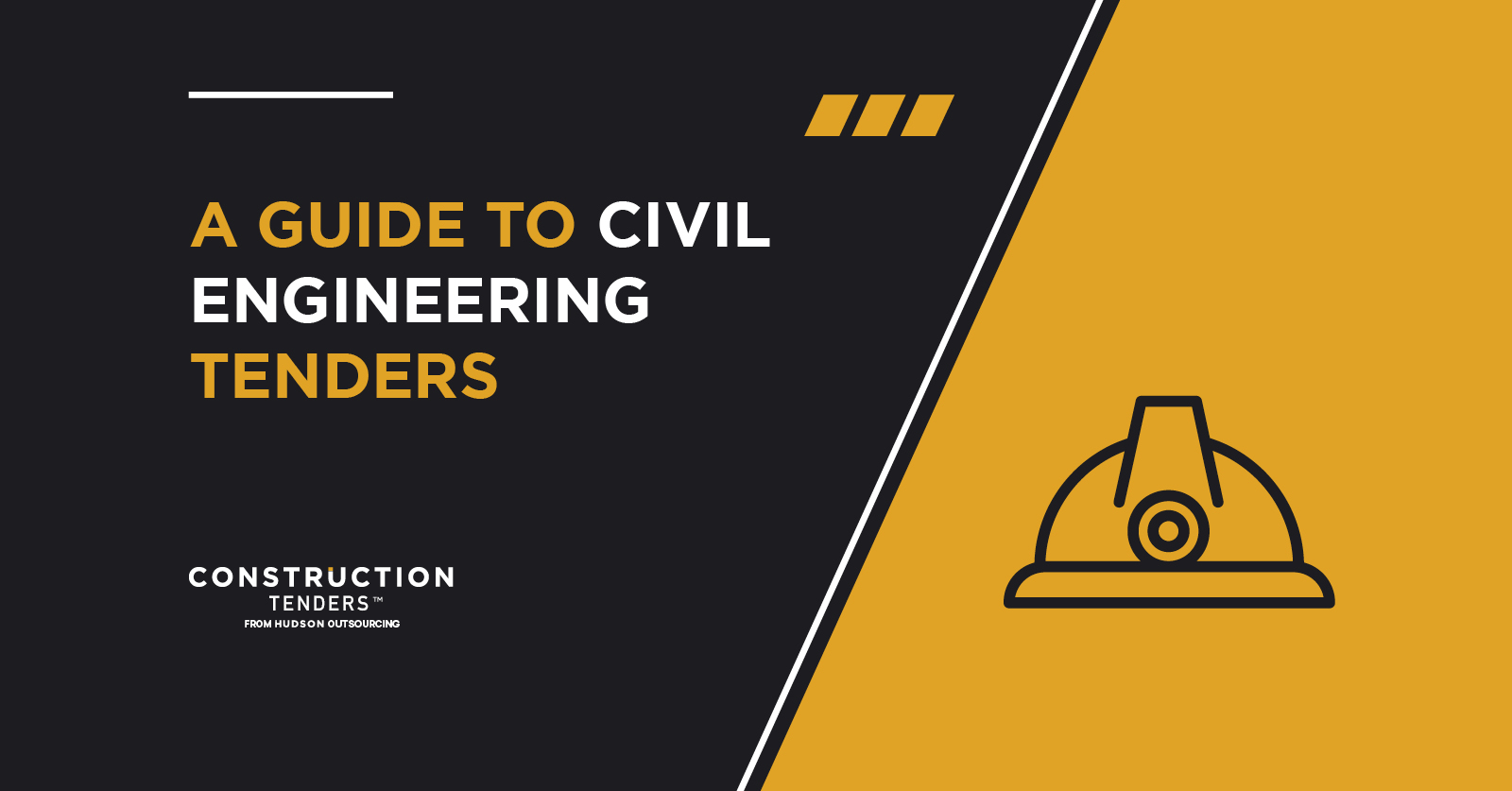Cost consultancy tenders: 3 things to expect
Cost consultancy tenders can be a difficult field to navigate if you’re new to the process. However, tendering for work can have multiple benefits for your business, helping it to grow. Cost consultancy tenders are released within the construction industry by public and private businesses looking to procure cost consultancy services.
Below are 3 things you can expect with cost consultancy tenders
1. An open tendering procedure
An open tendering procedure is often used for cost consultancy tenders within the public sector. This process is commonly used to procure services that are deemed to be straightforward. It allows any business to bid for their contract. An invitation to tender (ITT) is published and any prospective supplier can respond. An ITT will often be split into two sections consisting of price and quality. The quality response often requires you to detail:
- Company information
- Economic and financial standing
- Insurance
- Grounds for mandatory exclusion
- Technical ability
- Health and safety
- Delivery plan
- Cost plan
- Modern Slavery Act
The ITT also usually includes details of the:
- Award criteria
- Terms and conditions
2. Framework Agreements
You can often find cost consultancy tenders as part of framework agreements. Framework agreements are multi-supplier contracts that can run for years at a time. They may even have the possibility of an extension and can be lucrative opportunities for your business. Frameworks are often used within the public sector to procure multiple suppliers for different services, good or works.
They are typically split into lots with each lot representing a specific good, service, work or geographical location. Lots allow suppliers to apply to the specific lots they specialise in or specific region they operate in. Depending on the agreement, a supplier may be eligible to apply for more than one lot. This will be stated within the cost consultancy tender documents. A buyer will require you to supply evidential proof that they’re able to carry out the contract. They must have the appropriate capacity and resources to undertake the works across all selected lots.
3. Case studies
Cost consultancy tenders will require you to include a maximum of three previous case studies of previous contract examples. You should aim to keep these relevant. Include examples that are similar in scope, scale and location to the contract at hand. They should be tailored to demonstrate your business capabilities and include any challenges you overcame. Including unexpected challenges will allow you to demonstrate your problem-solving skills and flexibility.
Need assistance when writing your next cost consultancy tenders?
All buyers care about the quality of your written bid response, even if the quality is weighted less than price. You may not always have the time or resources to write winning cost consultancy tenders. If that’s the case, outsourcing it to bid writing specialists can help you secure your construction contract.
Our sister company Hudson Succeed, are bid writing experts. They have over 60 years of bid writing experience and an 87% success rate. They offer four bid writing support services that can help with your next tender response. Whether you’re completely new to tendering or need your bid response proofread before you submit – they can help.
Tender Writing
Once you’ve found the perfect cost consultancy tender for your business, why not send it over to them? Our Bid Writers can take care of it all for you. They’ll let you know what they need from you, providing you with a full Tender Writing breakdown. They’ll even submit it on your behalf.
Tender Mentor
If you’ve written your own tender response and need someone to double-check it for errors, Tender Mentor can help. Our Bid Team will proofread your work for any inconsistencies, grammar or spelling mistakes. They’ll also ensure that it’s in line with the specification before you submit.
Tender Ready
Our Tender Ready programme is perfect for those who have never tendered before. A Bid Writer will work with you to make sure you have everything you need in place to tender successfully. The 4-week programme offers your business:
- A 12-month subscription to Construction Tenders
- Access to Global Bid Directors and Senior Bidding professionals
- An organisation-wide Bid Library, including 3 case studies, 5 CV’s and 8 policies
- Additional flexible benefit options.
Tender Improvement
If you’ve been tendering but aren’t seeing the results you want, our Tender Improvement package can help. The Bid Team will assess your previous responses and tender documents, working with you to improve for future submissions. This package includes a 12-month subscription to Construction Tenders and additional tendering development services.
Where can I find cost consultancy tenders for my business?
Finding the right cost consultancy tenders for your business can take hours out of your busy day. Searching multiple websites and portals can end up feeling like a full-time job! Luckily, we have a solution.
Construction Tenders is one centralised easy-to-navigate portal that hosts all live construction leads and tenders from across the construction industry. Our Opportunity Trackers manually search and upload tenders from thousands of websites in the UK. There’s no reliance on inaccurate CPV codes that often results in missed opportunities. You’re able to search and filter the results by location, budget, keyword and more. This allows you to find the perfect cost consultancy tenders to suit your business needs.
What’s included in a subscription to Construction Tenders?
A 12-month subscription to our Construction Tenders portal offers your business:
- Access to all unique, public and private sector opportunities across the construction sector.
- A dedicated Account Manager to answer any questions you may have about cost consultancy tenders.
- A daily email bulletin sent straight to your inbox when new construction tenders are uploaded that day.
- 20-minutes of free bid management consultancy each month.
- Discounted support from Hudson Succeed, our bid writing division.
Below are previous cost consultancy tenders sourced on our portal:
Professional Services Framework for Project Management and Cost Consultancy Services
Radius Housing Association- Northern Ireland- Budget: Undisclosed
Provision of Cost Consultancy & Employers Agent Services
Niche Procurement Limited- North West- Budget: Undisclosed
Provision of Cost Consultancy Services
Niche Procurement Limited- North West- Budget: Undisclosed
Provision of Quantity Surveyor and Cost Consultancy Services
National Museums Scotland- Scotland- Budget: Undisclosed
SADC ITT for the Provision of Cost Consultancy ‘Holyrood Crescent Project’
Supply Hertfordshire- Eastern- Budget: Undisclosed
The best way to venture into the tendering world is through booking a live demo of Construction Tenders.
We also source opportunities for services including;
- Health & Safety Tenders
- Cable Laying Tenders
- Structural Engineering Tenders
- Electrical Tenders
- Building Works
- Joinery Tenders
- Architectural Tenders
- Refurbishment Tenders
- Brickwork Tenders
- Small Construction Tenders
- Civil Engineering Tenders
- Surveying Tenders
- Demolition Tenders
- Flooring Tenders
- Glass Tenders
- M&E
- Painting Contracts
- Decorating Tenders
- Masonry and many more.
Get in touch to find out how we can help your business grow.
Upgrade to Discover Elite
Upgrading to Discover Elite can save you even more time, optimising your tendering opportunities even when you’re busy. Our two time-saving tools can improve your competitor awareness and bidding success rate. Each package can help save you even more time when searching for cost consultancy tenders.
The Ultimate Time Saver package includes:
- An annual subscription to a maximum of two Hudson Discover sector-specific portals. This option best suits a business that overlaps two industries such as Construction and Logistics for example.
- A maximum of five tender breakdowns per month.
- Pre-market and award engagement notices monitored on your behalf.
- Buyer portal management including registration, password management, downloading documents and assessing viability based on your bid or no-bid.
- Weekly phone calls with your on-hand Account Manager to discuss viable cost consultancy tendering opportunities.
The Become a Pre-Bid Master package includes:
- All of the above.
- Up to seven tender breakdowns per month.
- A Bid Strategy delivered by a Senior Bid Manager with a minimum of 5 years of experience. It will also be managed by our Global Bid Director.
Contact us to find out how we can help your business.












